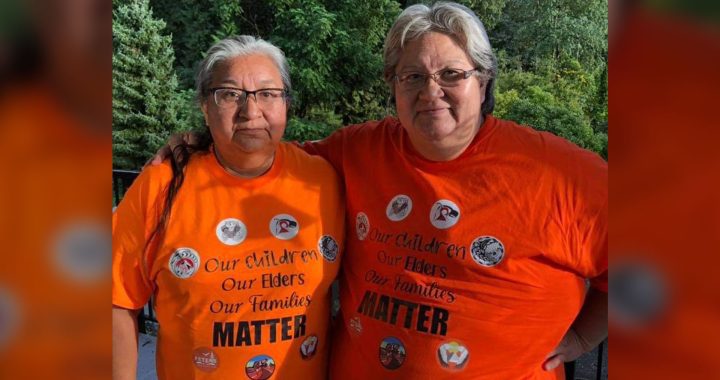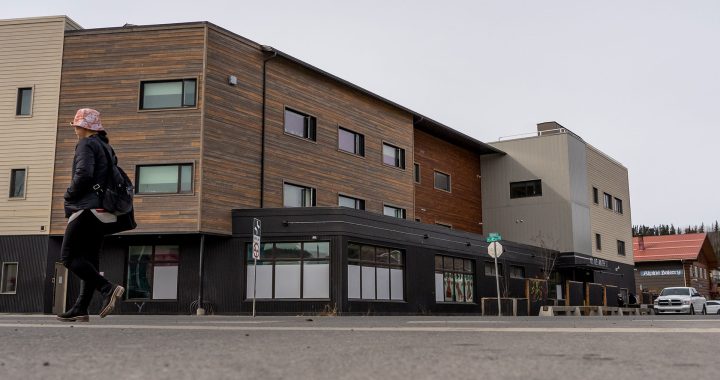Jorge Barrera
APTN National News
Everyone agreed the priest raped the child, the only question was whether it happened before or after the Spanish Boys Indian Residential School, near Spanish, Ont., closed in 1958.
The federal government’s lawyers held documented proof the rape happened before the school closed. The official tasked with determining the legitimacy of the claim and compensation—the Independent Assessment Process (IAP) adjudicator—also possessed a person interest report that referred to the same document.
Yet, the adjudicator rejected the claim in a January 2012 hearing after determining the boy was raped following the school’s closure in a decision based on a “perverse finding of fact.” The decision was upheld twice in successive IAP appeals in rulings based on “myopic logic,” according to an Ontario judge.
The man who filed the claim, identified only as “M.F,” took his case before the Ontario Superior Court after the IAP losses. This past July Justice Paul Perell sided with M.F. in a ruling that eviscerated the reasoning of the officials involved in the multi-tiered IAP adjudication process that rejected M.F.’s claim.
The ruling has also raised concerns among some who have been watching the IAP process with increasing alarm following several cases of lawyer corruption and revelations Ottawa’s adversarial and overly-legalistic tactics aimed at limiting payouts to residential school survivors.
When Indian residential school survivors reached a multi-billion dollar settlement agreement with Ottawa and the Churches it led to the creation of a compensation process led by adjudicators who determined the legitimacy of claims and compensation amounts based on documents and arguments provided by federal lawyers and submissions from Indian residential school survivors.
The adjudicators are required to follow criteria set out in the settlement agreement when making decisions. Survivors can appeal the decisions of adjudicators before a review adjudicator and then a re-review adjudicator, according to the settlement agreement.
M.F. was approaching 62 years-old by the time of his initial IAP hearing and his memory of the “horrific events he experienced over 50 years ago” was fragmented—he couldn’t quite remember the exact age when “Father B” violated him in the chapel storage room of the Spanish Boys Indian residential school.
M.F. is a “non-resident claimant” because he didn’t attend the school. He often visited the school where his aunt worked as a cook, according to a description of the narrative outlined in Perell’s ruling. It was during these visits that Father B met M.F. and recruited him to be an altar boy. The priest raped M.F. while he was in altar boy training, according to the ruling.
“There was no dispute that Father B sexually assaulted M.F. in the sacristy beside the chapel used for the Spanish Boys IRS,” said Perell, in the ruling.
The issue was whether M.F. was raped before or after the residential school closed on June 30, 1958. According to a document in possession of Ottawa’s lawyers, and referred to in a file held by the adjudicator, Father B boarded a train to Winnipeg the day after the school closed “never to return to Spanish.”
This was the evidence needed to confirm the assault happened while the residential school was in operation, meaning M.F. qualified for compensation. M.F. believed he was about eight years-old when he was raped.
Ottawa’s lawyers never submitted the evidence during the hearing and M.F. said he did not know the document existed until he filed his court action challenging the rejection of his claim, according to Perell’s ruling.
The adjudicator, however, concluded the assault happened after the school closed and rejected M.F.’s claim. In a bizarre deduction exercise, the adjudicator determined M.F. must have been 10 when the incident occurred, roughly two years after the school’s closure.
The adjudicator based this determination by comparing the age of her Catholic nieces and the religious steps leading to the role of altar boy, according to a portion of the hearing transcript excerpted in Perell’s ruling.
The Adjudicator: Grade 2 is your first communion, that’s right. I’m just trying to think of my nieces because they’re Catholic and they’re going through this right now.
M.F.: Oh yeah?
The Adjudicator: So, yeah, they—and the one is in Grade 2, she’s getting her first communion this year, supposedly, I don’t know. And then confirmation comes after communion.
M.F.: M’hmm.
…
The Adjudicator: Right? So I think you’re a little older than eight when you’re confirmed. Like nine or 10.
M.F. I’m not sure.
M.F. then appealed the rejection to a review adjudicator and the re-review adjudicator, losing both times.
Perell found the adjudicator, review adjudicator and re-review adjudicator all committed serious errors in handling M.F.’s case.
Perell ruled that the IAP adjudicator on the case made an “inconsistent, discordant and…perverse finding of fact.”
The judge found that the review adjudicator’s “deference” to the adjudicator’s initial ruling was “an abdication of the review adjudicator’s responsibility” under the Indian residential school agreement.
Perell determined the re-review adjudicator also failed to follow the guidelines set out in the settlement agreement through an erroneous and restrictive interpretation that led to the “myopic logic that caused the grave injustice done in the present case.”
In the end, Perell refused to refer the case back to the IAP process for another hearing and instead ordered the parties to negotiate a settlement for M.F. If the parties failed to reach a settlement Perell ruled he would make the final determination on the award.
NDP MP Charlie Angus, who has been an increasingly persistent critic of the IAP process, said Perell’s ruling reveals a deeper systemic failing with an IAP more concerned with protecting the system than providing justice to survivors.
“In cases where the adjudicators have failed we have never seen the IAP willing to stand up for the survivor, they are protecting their own, they are protecting a failed system,” said Angus. “What about all the other cases where the IAP shrugged when evidence was suppressed or when justice officials lied?”
Angus said he no longer trusts the IAP process and believes it is time to take cases like these out of the system.
“If this happened in a court of law there would be legal and professional consequences,” he said. “A credible judicial process would have consequences. So far there have been no consequences for this behaviour.”
M.F.’s lawyer David Schulze was not available for comment.
@JorgeBarrera









